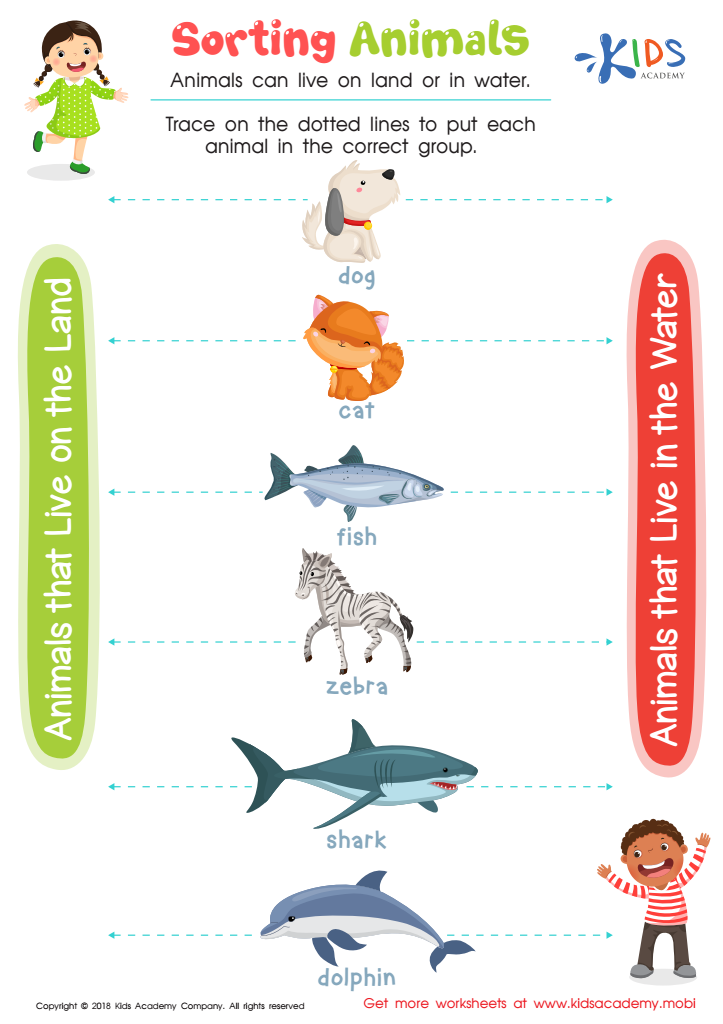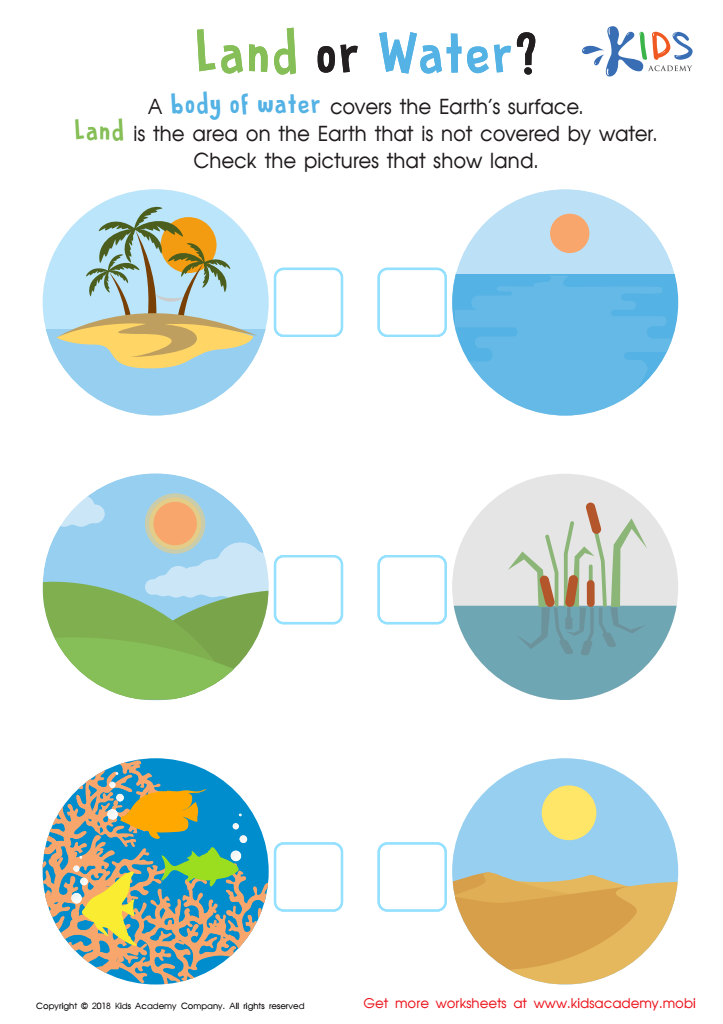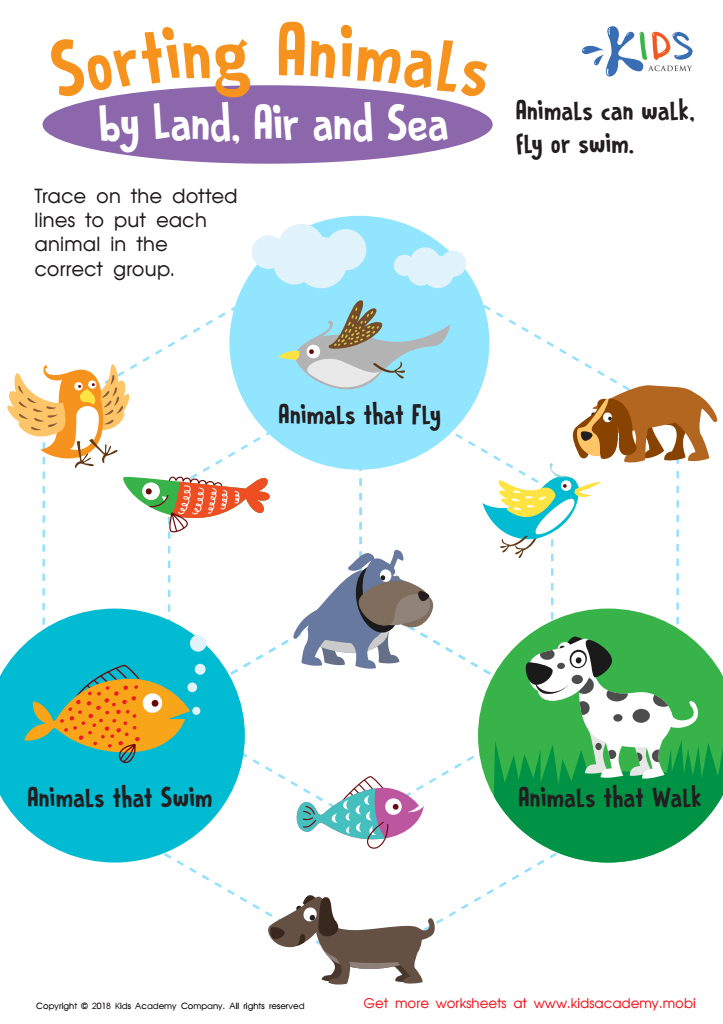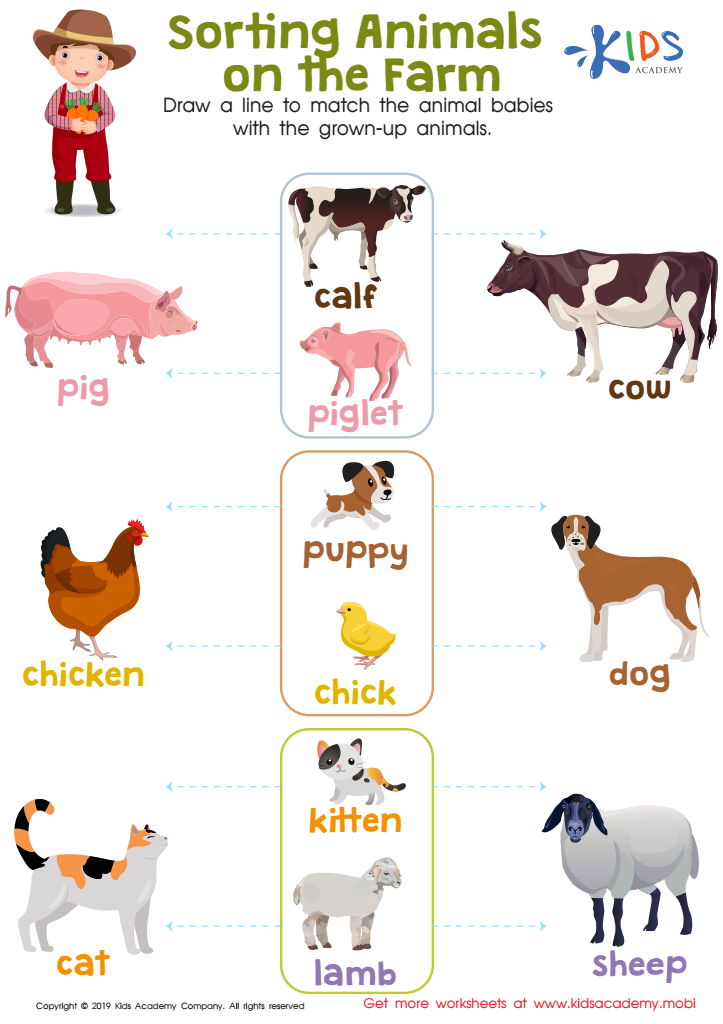Understanding habitats Normal Worksheets for Ages 5-8
6 filtered results
-
From - To
Embark on an educational adventure with our "Understanding Habitats" worksheets designed for ages 5-8. These engaging and colorful worksheets introduce young learners to various habitats and the fascinating animals that inhabit them. Children will explore forests, oceans, deserts, and more while developing critical thinking and observational skills. Perfect for classroom or home use, each worksheet promotes learning through fun activities like matching, tracing, and quizzes. Foster a love for nature and environmental awareness in your little ones with our expertly crafted resources available at Kids Academy. Visit us to make learning about habitats an exciting experience!


Sorting Animals Worksheet


Space: Assessment 1 Worksheet


Land or Water Worksheet


Sorting Animals by Land, Air and Sea Worksheet


Sorting Animals on the Farm Worksheet


Animals and Plants: Assessment 2 Worksheet
Understanding habitats is fundamental for early learners aged 5-8 as it nurtures curiosity, ecological awareness, and a sense of responsibility towards our environment. At this formative age, children are naturally curious and eager to explore the world around them. Teaching them about various habitats, such as forests, oceans, deserts, and wetlands, taps into this curiosity and provides a foundation for broader biological and environmental education.
In learning about habitats, children see first-hand how different environments support diverse types of animals and plants, which helps them appreciate biodiversity. This understanding fosters respect and empathy for all living things, building foundational values that contribute to responsible environmental stewardship in the future.
Moreover, discussing habitats introduces children to basic scientific concepts such as food chains, ecosystems, and the importance of conservation. This early exposure builds critical thinking skills and a scientific mindset that will benefit their academic progress in later years. Lessons on habitats can also be linked to storytelling, arts and crafts, and outdoor activities, making learning engaging and holistic.
For parents and teachers, encouraging an understanding of habitats will help children develop a lifelong appreciation for nature and the importance of protecting our planet. It equips young minds with knowledge that is crucial not only for their growth but for sustaining the global environment.
 Assign to My Students
Assign to My Students






.jpg)









